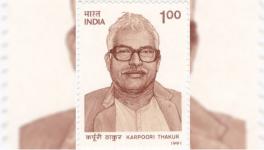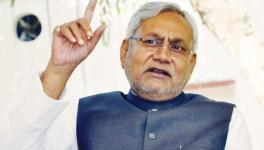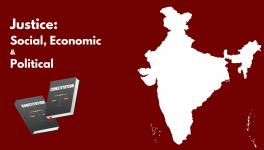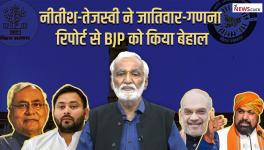Their Gangster is Gangster Our Gangster is Hero
An alarming phenomena involving the State, society and media kept us riveted to our screens all last fortnight. The elimination of gangster-turned-legislator Atiq Ahmed and his brother Ashraf of Prayagraj [earlier Allahabad] was an anticipated extra-judicial killing that turned into a custodial death. The State helpfully provided two choices to those keen to decipher its meaning—did some rogues eliminate Muslim rouges, or did they eliminate just two rogues?
Even if the snowballing electoral dividends of communitarian polarisation are evident to all of us, the State and its supporters leaned on the latter interpretation. They said Atiq and Ashraf’s religious identity was irrelevant to their assassination. But how the killings occurred was undoubtedly shocking, not least because it was telecast live on TV. But then, soon enough, even this ceased to concern a significant section of the population.
But more ironies are in store, such as the Bihar government prematurely releasing another gangster, ex-legislator Anand Mohan Singh, who was serving a life imprisonment term for having killed a Dalit IAS officer, G Krishnaiah, in Muzaffarpur on 5 December 1994. Anand Mohan, from the dominant Rajput caste, was let go of by a government that champions social justice and secularism. It is ostensibly at war with majoritarianism and upper caste hegemony, but used its powers to amend the prison manual to set many convicted men free. Anand Mohan’s son, Chetan Anand, is a legislator of the Rashtriya Janata Dal (RJD) from the Sheohar seat in Bihar. Chetan’s mother, Lovely Anand, was Lok Sabha Member of Parliament from Sheohar and Vaishali.
Poll observers would say the ambition to garner Rajput voters is behind the decision to release Anand Mohan. But the question arises, why will it not alienate Dalit votes from the ruling RJD-Janata Dal (United) combine? The Left parties sharing power in the Bihar government and former Member of Parliament Chirag Paswan, who claims to represent Dalit interests in Bihar, have spoken out against the decision, and Uma Devi, Krishnaiah’s wife, has approached the courts seeking a reversal of the release.
There seems to be no end to the release of convicted criminals. In recent months, the Bharatiya Janata Party (BJP) government ruling Gujarat used its discretionary powers to set free rape, mass murder, and arson convicts in the massacre of 2002. The prevailing political climate suggests intense anti-Muslim hatred will fetch the BJP even more Hindu votes. Also, when they vote, many Indian citizens seem pathologically drawn to the tormentors of tribal communities and Dalits.
These developments symbolise the complete failure of multiple institutions—political parties, police, media, and society. But in our bizarre era of gangsters becoming community heroes, the rise of Anand Mohan needs to be understood. He founded the Bihar Peoples Party in 1993 and fashioned himself as the saviour of Rajput pride in the Kosi belt of eastern Bihar. To ensure his wife, Lovely Anand, won the Vaishali Lok Sabha by-election held in 1994, he wrought a combination of two rival dominant castes, the Bhumihars and Rajputs, both opposed to then chief minister Lalu Prasad Yadav.
The Rajputs, including Lovely, and Bhumihar criminal Chhotan Shukla, backed Shahi’s widow, Veena, in the by-election held in Vaishali in 1994. Her victory cemented the arrival of the Rajput-Bhumihar pact that threatened Lalu’s carefully-crafted caste equations. Later, when Bhumihar don Munna Shukla became an MLA, he installed a giant statue of Maharana Pratap at a busy crossroads in Lalganj, Vaishali, as if to showcase the power of this pact.
In fact, Bihar’s “forward” castes had started consolidating against the rise of the backward castes in the nineties. Their equations showed signs of thawing in 1992, when supporters of the ruling Janata Party killed Congress MLA from Vaishali and rising Bhumihar leader Hemant Shahi. Further, the 1994 alliance could be forged despite the political rivalry that had divided the Bhumihars and Rajputs in Bihar even during the colonial era.
In 1998, Bihar minister Brij Bihari Prasad was murdered and it is believed Shukla held Prasad responsible for the killing of his brothers, Chhotan and Bhutkun, also gangsters. In 2007, Shukla and Surajbhan Singh, another Bhumihar gangster from Mokamah, were convicted for this killing, and Shukla was consequently barred from contesting elections.
What adds a new layer to this seemingly garden variety revenge killing is that since the 1990s, Prasad had come to symbolise backward caste assertion in Muzaffarpur city. An engineer from a backward caste family with roots in Champaran, he is said to have been a close aide of Raghunath Pandey, a Bhumihar strongman and Congress leader from Muzaffarpur.
Until the nineties, Muzaffarpur was identified as a centre of the economic and political power of the Bhumihar community. And Pandey lorded over it in the 1970s and 1980s. He even became a minister in the Satyendra Narayan Sinha Cabinet in the late 1980s. [Although Sinha writes in his memoir that including the sullied strongman in his Cabinet signalled his personal moral degeneration.]
Pandey was also a cinema and transport entrepreneur, and patronised Prasad, who secured government construction contracts through his Bhumihar connection. Later, they fell out, but Prasad rose to become MLA from Adapur in Champaran in 1990 and 1995. He was minister of Science and Technology in the Cabinet of Lalu’s wife Rabri Devi and was killed in broad daylight on 13 June 1998 at a Patna hospital. In the same year, 1998, the Janata Dal nominated Prasad’s wife, Rama Devi, to contest from the Lok Sabha seat in Motihari. She defeated the BJP’s Radha Mohan Singh by a considerable margin. Later, she joined the BJP and won the Lok Sabha seat from Sheohar in 2009, 2014 and 2019.
Back to 1994 Vaishali
In the 1994 election in Vaishali, Lovely defeated Janata Dal candidate Kishori Sinha, wife of Satyendra Narayan Sinha, a former chief minister of Bihar. Many saw her victory as the beginning of Lalu’s end. Weeks later, Nitish Kumar broke away from Lalu to form the Samata Party.
Fast forward to the 2015 Bihar Legislative Assembly election, and Lovely lost (by the slimmest of margins) as a Hindustani Awam Morcha (HAM) candidate from Sheohar. Recall also that Jiten Manjhi, Dalit leader and former Bihar chief minister, had said a new chief minister would not take oath unless Anand Mohan—Lovely’s husband—was released. Obviously, this was not to be at that point of time.
Who is Bihar’s Intelligentsia?
The criminal dons of Bihar have demonstrated their merit as intellectuals by earning doctoral degrees and becoming authors and poets. Siwan’s gangster legislators Mohammad Shahabuddin and Munna Shukla have obtained doctorates from the BRA Bihar University Muzaffarpur. Anand Mohan and Pappu Yadav are author-poets. The noted literary critic Namwar Singh was the chief guest at the book launch of Anand Mohan’s memoir, written in prose and poetry. Well-known intellectual Shaibal Gupta wrote in The Indian Express in September 2016 that Bihar is one of the few states where the “intimacies of the mafia and intelligentsia” are celebrated. The point is that gangsters are not only legislators but an intelligentsia unto themselves. Shahabuddin flamboyantly proclaimed he had read notable books like Arundhati Roy’s The God of Small Things, Mario Puzo’s The Godfather, and many more.
Hypocrisy Over Atiq
In Atiq’s case, one could see more disturbing narratives: While demanding rule of law and opposing identity-based extra-judicial killings, some Muslims called him a reformist, a philanthropist, a lover of poetic soirees; in short, a community hero. Valorising criminals does a great disservice to the struggle for the rule of law. It does not take away from the despicable majoritarian celebration of Atiq’s mediatised killing. That display confirmed how deep anti-Muslim hatred has penetrated India, and it is deeper than ever before. Yet, if the character of the Indian State has been exposed in many disturbing ways in recent decades—the worst aspects of society also are being put on display in the responses to the spate of killings.
Tracing Atiq’s rise to be identified as a community hero presents another intriguing picture. An ‘expose’ by Lucknow-based journalist Sanjay Sharma and a four-part profile in Hindi of Atiq by Prayagraj-based journalist Mohammad Zahid suggest that his land-grabbing victims were mostly Muslims in his neighbourhood. After amassing profits through railway scrap tenders, which he no longer had access to after 2005, he reportedly aligned with every political party possible, the Samajwadi Party, Apna Dal, Congress Party, and even allegedly extended proxy electoral help to the BJP in the 2018 Lok Sabha by-election in Phulpur, though he hardly got votes in that election. It is alleged his benefactors included BJP bigwigs.
Atiq was from a ‘low’ caste poor Muslim family. Son of a horse-cart puller, he is said to have committed murder at 17. Yet he lived into his sixties, earning wealth and getting elected to the Assembly five times as well as going to Parliament. It is an astonishing development, for my research shows that gangsters from marginalised identities are usually eliminated in their thirties.
While this should make society and State rethink how they work, it is a fact that Rajputs are not stigmatised as a community when Anand Mohan is released. Nor are Rajputs forced to carry the burden of explaining why Anand Mohan’s misdeeds are not their fault as a whole. The BRA Bihar University of Muzaffarpur was a den of Bhumihar gangsters, but the Bhumihars are not stereotyped either. This benefit is denied to ordinary Muslims or the universities they attend.
That is why, identity politics and State institutions becoming subservient to gangsterism is not the only problem. If hoodlums, lumpen elements, gangsters and villains are becoming heroes in families, neighbourhoods, castes and religious communities, it reflects a general social attitude as well. Indifference and support to wrongdoers rather than solidarity with the aggrieved, is becoming a norm in India. Those who indulge in demonstrative piety get even more appreciation despite their mechanical religiosity. If social institutions and State apparatuses crumble this easily for gangsters, we might have at least a partial explanation for India’s communitarian turn.
The author teaches modern and contemporary Indian History at Aligarh Muslim University. The views are personal.
Get the latest reports & analysis with people's perspective on Protests, movements & deep analytical videos, discussions of the current affairs in your Telegram app. Subscribe to NewsClick's Telegram channel & get Real-Time updates on stories, as they get published on our website.
























